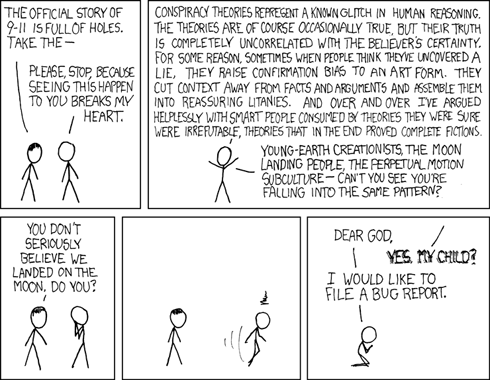Okay, first, if you haven’t seen Colin Powell’s endorsement of Barak Obama, check it out. I doubt it will change things very much, but it’s far and away the most eloquent and moving thing I’ve seen come out of either side of the campaign.
I can’t vote in the US, but I like to make-believe I can. When Obama and McCain started the campaign, I was actually hoping more for a McCain presidency more than an Obama one. Obama seemed unproven and the beneficiary of a cult of personality, whereas McCain seemed like a reasonable, honourable moderate who would be able to work well with a Democratic senate and congress and possibly steer his own party toward the center, or at least center-right. But in any case, I thought, either would be vastly better than the Bush presidency.
Turns out I was completely wrong. In picking Palin, McCain showed himself to be unreasonable, unprincipled, and beholden to the Republican far right. He also raised the spectre of a president who would be everything wrong with Bush, but somehow even worse. Pretty much everything the pair has done since then just reinforces that. (I can’t imagine McCain is happy about any of this, either: when it comes time to tell the story of John McCain, it’s going to be downright Shakespearean.)
At the same time, pretty much everything Obama has done has shown him to be the kind of person who should be president. I don’t buy that Obama is a new JFK, or even a new Clinton, but I do completely buy that he’s the man for the job. I have a strange and unfamiliar feeling when I read about American politics now. I think it’s… hope? Or at least hope’s little brother, cautious optimism?

 I know it’s a cliché, but the older I get, the more interested I become in history. I have no romantic view of the past, though — I read history mostly as painfully slow progress punctuated by awful mistakes which cast very long shadows through the decades. And so I was fascinated by Nixonland: The Rise of a President and the Fracturing of America, Rick Perlstein’s 896-page political history. The eponymous “Nixonland” is the America that created Nixon and that he, better than anyone (except possibly Ronald Reagan), was able to exploit: a country with two visions that are both sincere, deeply held — and utterly incompatible. However, the Nixonland divide isn’t strictly between liberal and conservative, but between the privileged insider “Franklins” and striving outsider “Orthogonions”. The names are from two cultural clubs at Wittier College. When the former rejected Nixon for his poverty and working-class manners, he started the second.
I know it’s a cliché, but the older I get, the more interested I become in history. I have no romantic view of the past, though — I read history mostly as painfully slow progress punctuated by awful mistakes which cast very long shadows through the decades. And so I was fascinated by Nixonland: The Rise of a President and the Fracturing of America, Rick Perlstein’s 896-page political history. The eponymous “Nixonland” is the America that created Nixon and that he, better than anyone (except possibly Ronald Reagan), was able to exploit: a country with two visions that are both sincere, deeply held — and utterly incompatible. However, the Nixonland divide isn’t strictly between liberal and conservative, but between the privileged insider “Franklins” and striving outsider “Orthogonions”. The names are from two cultural clubs at Wittier College. When the former rejected Nixon for his poverty and working-class manners, he started the second.